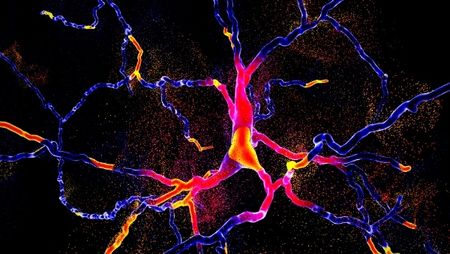
People understand more about neuroscience and neurochemicals and their impact on the brain. Dopamine can be more important this time because people experience more lack of dopamine and anxiety, low self-motivation, energy, and libido problems.
Optimizing and cultivating dopamine can be helpful for those who have depressive history and low energy power. Also, a good amount of dopamine can help better productivity at work or in daily life.
We will answer the question, “can hypnosis cause dopamine release?” in this article.
Understanding dopamine and reward system
Dopamine boosts motivation and pleasure. A low-dopamine lifestyle has numerous cons.
For example, Fatigue, depression, irritability, impaired cognitive function, and memory loss can result from dopamine insufficiency. Low dopamine levels might cause these adverse effects. These symptoms affect millions of individuals globally.
Dopamine can promote sensations of pleasure and reward, motivating you to continue an action.
Does Hypnosis Release Dopamine?
Hypnosis can change the brain waves to alpha and theta brain waves which lead to more serotonin. One thing certain is that “imaging” and “thinking” something leads to secrete brain chemicals such as dopamine, serotonin or others.
However, when under hypnosis, you might feel a positive impact, such as relaxation and calm, by altering the patterns of thinking and behavior that people have.
After that, the primary effect of this strategy is that it causes our brains to produce feel-good chemicals like serotonin and dopamine, which in turn helps us lead happier and more motivated life.
Good Memories Can Trigger Dopamine
Personal memories of joyful times might reawaken pleasurable sensations that are deeply connected to the primary event that leads to trigger dopamine.
If the hypnotist knows the patient’s background, they might use memories to trigger emotions.
If the patient describes a nice experience using particular phrases or linguistic patterns, the hypnotist may duplicate them to jog the memory. This is common but seldom intentional.
Progressive Muscle Relaxation And Visualization Can Enhance Dopamine
Using one’s imagination, whether in the form of imagery or visualization, can assist one in achieving a state of greater physical relaxation.
We should understand that we can stimulate our brain via thoughts, and visualization.
Our body can become tense and strained in reaction to ideas that make us angry or nervous, but it is also possible to become more calm and relaxed in response to relaxing, peaceful, and pleasant thoughts.
Sure, depending on what kind of visualization you are doing that stimulates neurotransmitters such as dopamine and others to activate the brain.
For example, research showed that remembering good memorial things, such as moments when you smile with your family and others, will exchange serotonin, the happiness brain chemical in the brain.
Progressive Muscle Relaxation For Dopamine: In addition to the cultivation of a sense of well-being, progressive muscle relaxation can help:
- Decreased muscular tension
- Lower Blood Pressure
- Helping better oxygen intake
Because of deep breaths and relaxation, your brain secretes more of the positive chemicals, such as dopamine and serotonin, as well as others, and you will feel a relaxed state.
What Happens to the brain while under hypnosis?

Don’t worry about that. You are aware that you may be susceptible to suggestions during a hypnosis session.
Instead of losing control, a comprehensive series of sessions can assist a person in regaining control. If I am not convinced of my new patient’s firm dedication to a stated objective during the initial consultation, I will not continue to work with them.
Hypnosis is more effective when the participant involves and wants to change. It’s not a directly subliminal message as your things. However, sometimes unwanted repressed memories can arrive during the hypnotic state. These repressed memories might involve fears and phobias.
More information: Can you resist hypnotic suggestions via willpower?
Can hypnosis help in behavioral change?
It depends on the person and how open or closed they are to suggestions and affirmations made under hypnosis.
However, you may find that hypnosis helps assist you in acquiring control over unwanted habits or in assisting you to better deal with anxious feelings or physical discomfort. That will leads to dopamine and reward secretion.
The more hypnosis sessions, the better you can achieve, suggested because the Subconscious mind change through repetitions. Through repetition, you may rewire your subconscious mind.
Related: Can Hypnosis Help People Change How They Act?
Final Thoughts
Hypnosis is a great tool for lowering cortisol, altering brain waves, and increasing motivation and dopamine release. Reducing cortisol and altering brain waves is a “huge” deal in optimizing our life and well-being.
Also, hypnosis puts us in a relaxed state and can help lower anxiety and better sleep. The more you can get sleep, the more you will better dopamine and other brain chemicals level, so in that regard, hypnosis can help.
To optimize dopamine levels, you should also avoid pornography, gambling, and other types of harmful addiction. Hypnosis can help to fight for them.

